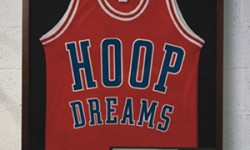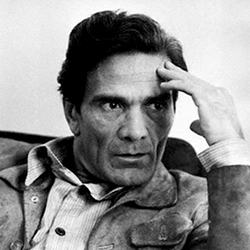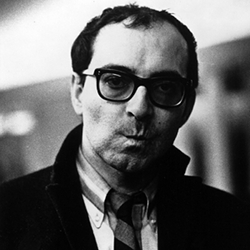
TV Recap: Girls, “Role-Play” (3.10)
March 9, 2014, 10:00 pm (EST), HBO
Over the last decade or so, a cult of serialization has risen up in discussion of television. We all bow at the altar of the serialized television show and write our psalms to its greatest successes. Long form storytelling of this sort is perhaps the greatest triumph television has accomplished to date, but it is hardly the only color in the crayon box, and despite our protestations, plenty of the other hues still work fine. Girls is, technically, a serialized dramedy, but in reality it works more like a collection of essays of the sort that make up Hannah’s now-fallow manuscript.
It is a series of interlocking but not necessarily wholly connected short stories in the form of (bear with me here) Arthur Conan Doyle’s Sherlock Holmes stories. The basic status quo of the characters slowly evolves over time, to the point where you need to know that Watson moved out of Baker Street and got married, for example, or that Jessa is an addict who is relapsing at this point in the story, but every episode is reasonably self-contained, and no matter how momentous the things that happen in it are, they may or may not have an effect on the show going forward. This is not the first time I have drawn the comparison, but the show is like Louie in this way. It doesn’t exist totally unmoored from continuity, but the two have a loose relationship that fluctuates based on dramatic need.
This is both a good and a bad thing. It can give us beautiful episodes like last week’s “Flo,” but it also leaves the show somewhat unprepared to engage in the longer arcs that it seems to want to pull out at about this point every season (Louie got around this by making all three episodes of the Late Night arc into a three parter, an arc that existed as a long, stand-alone story). “Role-Play” is a pretty great episode of the show when its about Hannah’s dawning dissatisfaction with Adam and her comical attempts to spice up their sex life, but it falters when it tries to be more momentous. Its final beats, when Adam tells Hannah he’ll be staying at Ray’s for a while, feel simultaneously inevitable and completely rushed, and for the first time this season, I was reminded of the bungled OCD plotline from late last season.
But for most of this episode’s runtime, I was elated, drawn into the show’s humor and its wistfulness, pulled along by emotional connections it has established, but mostly totally engrossed in the story it was telling as it emerged. Hannah’s blonde wig and adopted persona, her role-playing efforts and total commitment to her shifting roles, was funny stuff, cringe-comedy with enough intimacy to make it more comedic than humiliating. But it was also totally engrossing from an emotional level, a naked effort to try and fix a problem she can’t exactly put her finger on; triage on a wound she cannot even see.
Dunham is absolutely fantastic in this episode, funny and soulful, wounded and outgoing, awkward and committed. She rarely gets enough credit for her performance as Hannah (such is often the case with gifted actors who are also lauded writers and directors), but this is an Emmy submission episode for sure. She gets to play Hannah as drunk, insecure, confident in her adopted persona, and broken out of it by the reality of a relationship deteriorating in ways she cannot identify or understand. It is stellar work, one of the best performances she has ever given on a show where she is consistently excellent.
Adam Driver is also fantastic here (though he gets more consistent credit for his work on the show, for reasons that are obvious and a little sad), playing Adam as a barely restrained wellspring throughout. His speech at the episode’s close about how he finally, actually, totally cares about something he’s doing and needs to give it his all no matter what was a great piece of writing, but Driver makes it come alive. Adam has always been passionate, but his passion has been directionless. He has found a place to aim it, both personally and professionally this season, and he doesn’t want to let either go, even as he realizes he may need to sacrifice one for the other right now. Dunham co-wrote this episode with Judd Apatow, whose work is full of comedic situations that suddenly turn deathly serious and force the characters to contend with realities they have been avoiding, and “Role-Play” is a fantastic example of that, with all the humor and all the pathos it entails.
Girls is a show that is great at the big moments, but at sea when it comes to developing the structure on which they lie. It works when the performances sell it, as they do here, and when the writing is enough on the wall that the movement has been telegraphed, even if not organically developed. This show is too frenetic, too jerky in its focus and in its tone, to really build to these moments the way it needs to for them to land fully. But if you view each episode as divorced from the others, as an island in the archipelago of the season, it becomes easier to buy that we just don’t see things building the way we would if this show was more serialized. It doesn’t make accepting these moments any simpler, and it doesn’t mean the show executes them with more grace, but it allows you to just enjoy how perfectly they play out for themselves, divorced from their lack of sufficient context.
Then there’s the Jessa plot, which even more closely resembles the OCD storyline from last year. It may sound like I’m down on “Role-Play,” an episode I quite liked with many moments I really loved, but the whole story of Jessa’s addiction is too glib and haphazard to register as a character arc. It manifests the same problems I have with the Adam and Hannah storyline in this episode, but with far more drastic consequences this season is mostly treating as an after-thought. The show has been accused of being too white, too privileged, too narrow in its focus before, and while I think all of those criticisms are valid, I think none sinks the show. Yet the weaknesses of Girls’ perspective are incredibly apparent in its handling of Jessa’s addiction, which has come to feel like an awkward thing happening in the background of everyone else’s story.
Again, Jessa-in-crisis becomes a sort of subplot within a subplot, and the episode largely feels like a story about Shoshanna being annoyed that her junkie cousin is getting in the way of her lifestyle. Jessa deserves more than this, and while the episode feigns in the direction of her losing another father figure, it never really registers because this is not her story. Her tragedy is background noise to the other, less significant disappointments and disillusionment of the other characters. While Hannah, Marnie, and Shoshanna’s lives are “falling apart” the way everyone’s life is always falling apart as they falter through their twenties, Jessa’s life is actually falling apart. And no one, not even the show’s writers, seems to be noticing. This is all headed somewhere, I’m sure, but for now, it feels like a loose thread worthy of becoming a carpet unto itself.
The Roundup
- -”Are you in for a little more? Because its an important investment in
or future. Sorry, my appointment just got here. Ok, bye Daddy!” - -”I’ve never said the word jetplane before!” Maybe the most endearing
thing Marnie has ever said. - -”Fuck the bus.”
- -”Hot night. Summer in the city. May I join you?” “The fuck?”
- -”Is there a straw?”
- -”She’s dating an Egyptian, so she knows a super lot about what’s going
on there…” - -”Strawberries, champagne, a dildo I’ve already destroyed from over-use…”
- -”Jesus fucking Christ, you look like a Christmas tree!”
- -”You look like a junkie.” “I am a junkie.”
- -”You can’t change roles in the middle of it. It doesn’t make fucking
sense.” “Oh, so now that you’re in a play you’re an expert on
narrative consistency?” - -”If you’re getting what you want, what do you care if I’m ‘in my
body’? What are you, the body police?” “You have an old idea of who I
am.” - -”What drama? This is just me!” “Exactly.”























